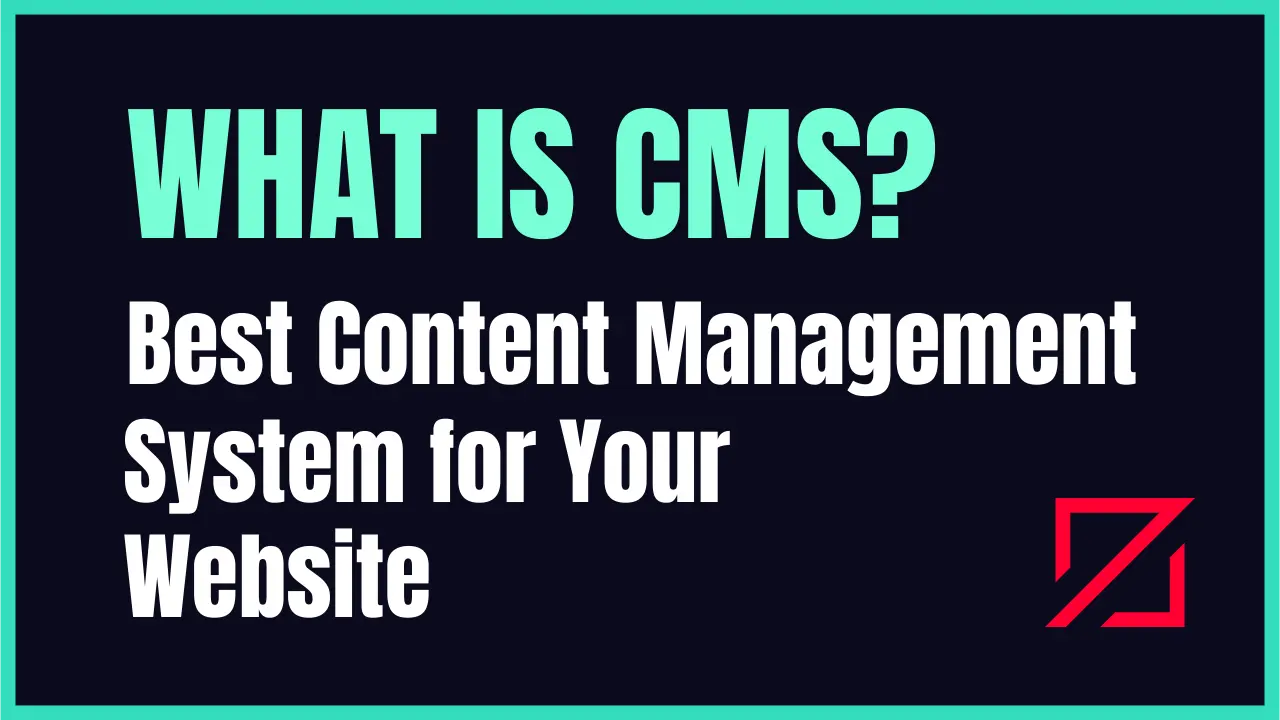In the digital era, maintaining a robust online presence is critical for businesses, bloggers, and organizations. A Content Management System (CMS) simplifies website creation and management, allowing users to focus on content without worrying about coding. But with so many options available, how do you choose the best CMS for your needs?
In this guide, we’ll explain what a CMS is, compare popular platforms like WordPress, Joomla, and Drupal, and highlight why WordPress stands out as the ultimate choice for most users. Plus, we’ll share tips on migrating to a CMS and optimizing it for your needs—with a creative solution from Codezilla.
Table of Contents
What Is a CMS?
A Content Management System (CMS) is a software application that enables users to create, edit, manage, and publish website content without needing advanced technical skills.
With a CMS, you can:
- Build a website from scratch or use pre-designed templates.
- Update content easily, from blog posts to product pages.
- Manage user roles and permissions for collaboration.
Simply put, a CMS empowers anyone to take control of their website.
Why Is a CMS Essential?
A CMS is a game-changer for website management because it:
- Saves Time: Create and update pages quickly without writing code.
- Improves Accessibility: Allows multiple users to collaborate in real time.
- Supports Scalability: Grow your website effortlessly by adding features and content.
- Enables Easy Customization: Tailor your site’s design and functionality with plugins, themes, and modules.
Popular CMS Platforms: A Comparison
There are many CMS platforms available, each with its strengths and weaknesses. Here’s a quick comparison of three popular options:
1. WordPress
- Ease of Use: Extremely user-friendly, ideal for beginners and advanced users alike.
- Flexibility: Thousands of themes and plugins for endless customization.
- Community: Backed by a vast community of developers and designers.
- Best For: Blogs, business websites, e-commerce stores, portfolios, and more.
2. Joomla
- Ease of Use: Moderate learning curve compared to WordPress.
- Flexibility: Robust for multilingual sites and complex projects.
- Community: Smaller but active community.
- Best For: Government websites, social networking sites, and portals.
3. Drupal
- Ease of Use: High learning curve, suited for tech-savvy users.
- Flexibility: Extremely powerful for large, complex websites.
- Community: Strong community of developers.
- Best For: Enterprise websites, universities, and large-scale projects.
Why WordPress Is the Best CMS
While Joomla and Drupal have their merits, WordPress consistently outshines the competition for several reasons:
1. User-Friendly Interface
WordPress’s intuitive dashboard makes it easy to manage your website, even if you’re a beginner. Adding new pages, posts, or media is a breeze.
2. Endless Customization
With over 59,000 free plugins and 10,000+ themes, WordPress can be tailored to suit any business or personal need. From SEO tools to e-commerce functionality, there’s a plugin for everything.
3. SEO-Friendly
WordPress is built with search engine optimization (SEO) in mind. Plugins like Yoast SEO make optimizing your content simple, helping your site rank higher in search results.
4. Cost-Effective
WordPress itself is free to use. While you might invest in premium themes or plugins, the platform remains budget-friendly compared to custom-built solutions.
5. Secure and Scalable
With regular updates and a range of security plugins, WordPress ensures your website stays protected. It also supports growth, handling everything from small blogs to large e-commerce stores.
Tips for Migrating to a CMS
If you’re ready to transition to a CMS, follow these steps:
1. Choose the Right CMS
Evaluate your needs, technical skills, and budget. For most users, WordPress is the perfect choice due to its balance of ease and functionality.
2. Back Up Your Data
Before migrating, ensure you have a complete backup of your existing website.
3. Plan Your Design
Decide on the look and feel of your site. WordPress offers countless themes, so you’re sure to find one that aligns with your vision.
4. Optimize for SEO
Take advantage of WordPress’s SEO plugins and features to ensure your site is search-engine-friendly from the start.
5. Partner with Experts
Migrating to a CMS can be complex. Codezilla specializes in WordPress development, making the process smooth and stress-free.
Conclusion: Let Codezilla Build Your Perfect Website
Choosing the right CMS is crucial for managing your website effectively, and WordPress stands out as the ultimate solution for its versatility, ease of use, and powerful features. Whether you’re a small business, a blogger, or an e-commerce entrepreneur, WordPress can meet your needs—and more.
Ready to take your website to the next level? At Codezilla, we are passionate about building websites that look stunning and perform flawlessly. From WordPress customization to CMS migration, our team will bring your vision to life.
Contact Codezilla Today!
Visit Codezilla.com.co to learn more about our services. Let’s create something extraordinary together!
